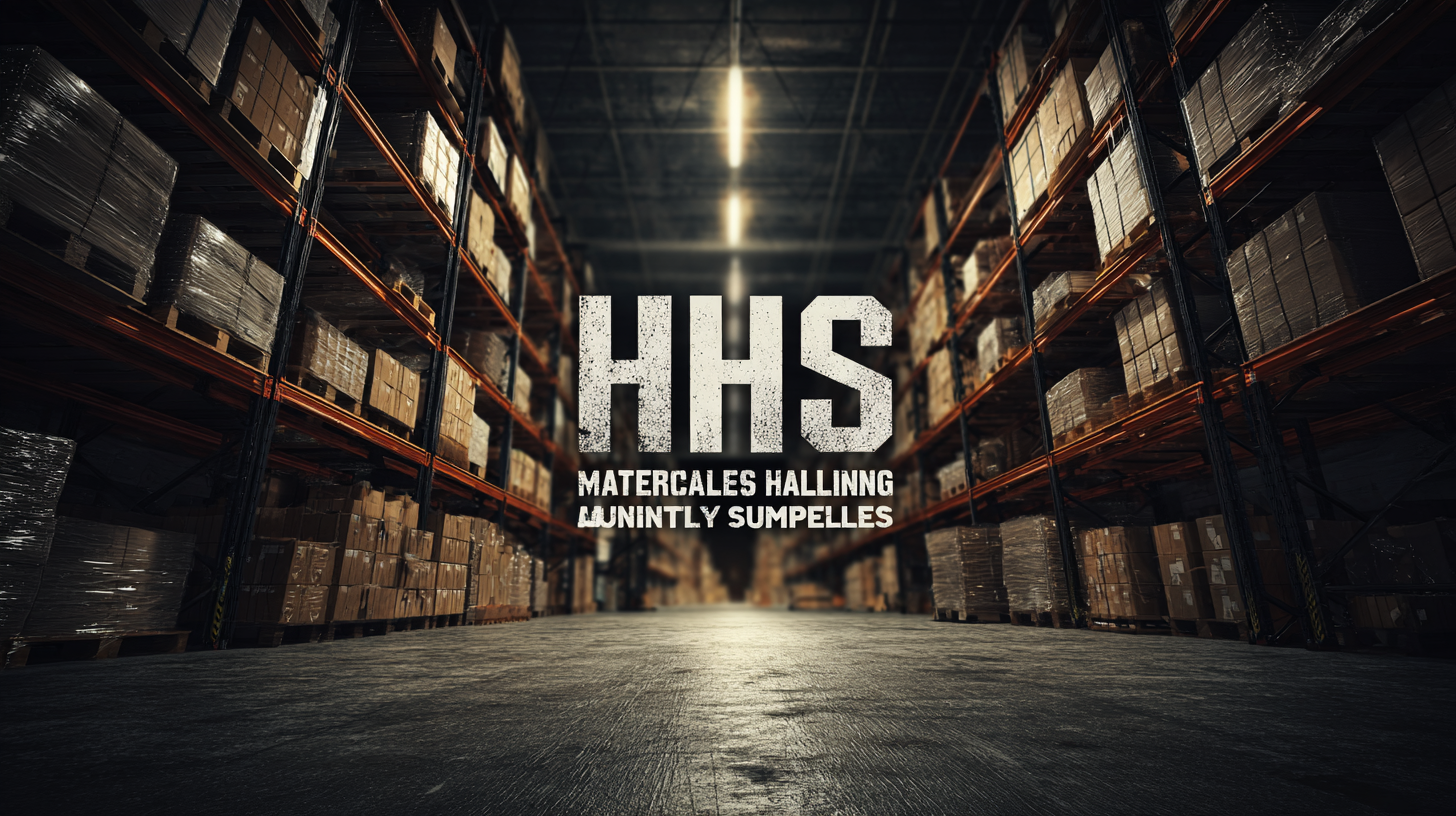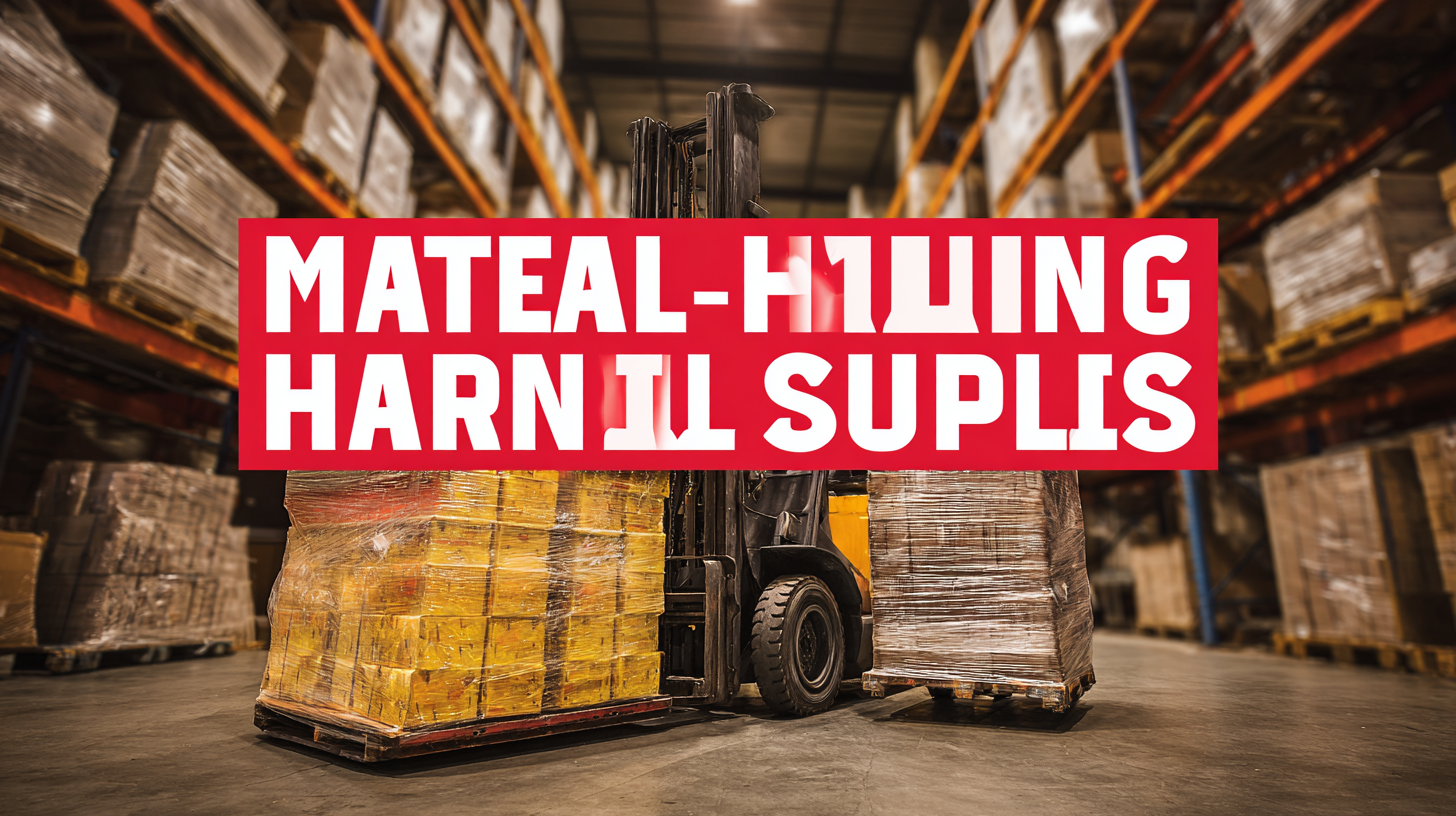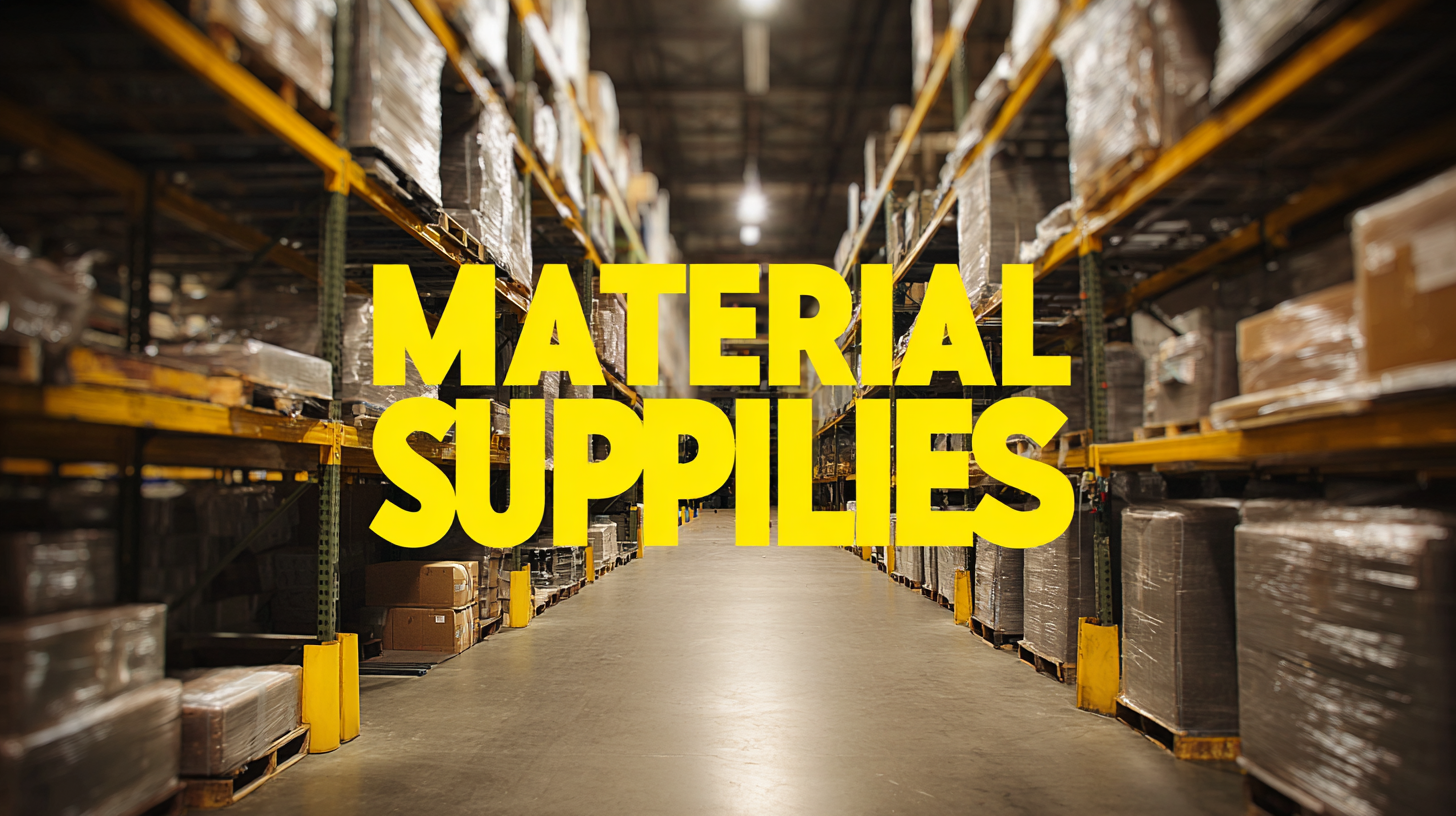How to Identify the Best Manufacturers for High Quality Material Handling Supplies
In the fast-evolving landscape of logistics and supply chain management, the significance of high-quality Material Handling Supplies cannot be overstated. According to a recent report by the Material Handling Industry of America (MHIA), the global material handling equipment market is projected to reach $200 billion by 2026, signaling a surging demand for reliable products that ensure efficiency and safety in operations. As businesses strive to optimize their workflows and reduce operational costs, identifying the best manufacturers becomes imperative. This task is not only about price but also involves a comprehensive evaluation of product quality, innovation, and supplier reliability.

With China's manufacturing prowess leading the way, it is crucial to scrutinize potential partners to ensure that their offerings meet the rigorous standards demanded by the industry. In this blog, we will explore the key factors that can help in selecting the most suitable manufacturers for high-quality Material Handling Supplies, ensuring your operations are equipped with the best tools available.
Evaluating Material Handling Supplies: Key Features to Look For
When evaluating material handling supplies, certain key features should be at the forefront of your decision-making process. First and foremost, consider the durability of the materials used. High-quality supplies are often constructed from robust materials that can withstand heavy loads and resist wear and tear. Look for manufacturers who provide specifications on their product materials, as this transparency can indicate their commitment to quality. Additionally, examine the design and engineering of the products. Ergonomically designed tools not only enhance user safety but also improve efficiency in daily operations.

Another critical aspect to assess is compliance with industry standards and certifications. Reliable manufacturers typically adhere to regulations that ensure their products meet safety and performance benchmarks. Assessing whether a product is certified by relevant industry organizations can offer peace of mind regarding its quality and reliability. Furthermore, consider the customization options available. High-quality manufacturers offer tailored solutions that can address specific challenges faced by your operation, ensuring that the supplies are not just adequate but ideally suited to your unique needs.
Understanding Different Types of Material Handling Equipment
Material handling equipment (MHE) plays a crucial role in modern industrial operations, facilitating the efficient movement, storage, and protection of products. Understanding the various types of MHE is essential for businesses aiming to enhance their logistics and operational efficiency. Key equipment types include forklifts, cranes, and automated guided vehicles (AGVs), each designed to meet specific material handling needs. Forklifts, for instance, are invaluable for managing loads in warehouses, while cranes are ideal for lifting heavy materials in construction sites. AGVs, with their automation capabilities, are increasingly popular in manufacturing environments, contributing to seamless operations.

In addition to these conventional types, the market for bulk material handling equipment is also expanding. Equipment such as stackers, reclaimers, and ship loaders are vital for industries dealing with large quantities of materials. The expected growth of the bulk material handling system market from 2025 to 2035 highlights the increasing demand for sophisticated equipment that can manage the complexities of supply chains. As technology advances, businesses must keep pace by investing in high-quality MHE that enhances productivity while ensuring safety and efficiency in operations.
Exploring Alternatives: Comparing Manufacturers and Their Offerings
When exploring alternatives for high-quality material handling supplies, it's essential to compare manufacturers based on their offerings and performance metrics. A recent industry report by Material Handling Industry (MHI) highlights that the global material handling equipment market is projected to reach $200 billion by 2026, indicating a significant growth trajectory. This expansion underscores the variety of suppliers available, making it crucial to identify those that align with your specific operational needs.
One critical factor to consider is the technology integration in equipment design. Manufacturers that invest in smart technologies, such as automation and IoT capabilities, often have a competitive edge. According to a survey conducted by Deloitte, around 55% of companies view automated material handling systems as pivotal for enhancing operational efficiency. Additionally, it's essential to evaluate the durability and warranty options provided by different manufacturers. Reports show that suppliers offering longer warranty periods typically indicate higher confidence in their product's reliability, which can lead to lower long-term costs for businesses. By scrutinizing these aspects, companies can make informed decisions that optimize their supply chain efficiency.
How to Identify the Best Manufacturers for High Quality Material Handling Supplies - Exploring Alternatives: Comparing Manufacturers and Their Offerings
| Manufacturer Type | Product Range | Quality Rating | Delivery Time (Days) | Customer Support |
|---|---|---|---|---|
| Standard Supplier | Conveyors, Pallets | 4.5/5 | 7 | Email, Phone |
| Custom Manufacturer | Forklifts, Custom Racks | 4.8/5 | 14 | 24/7 Support |
| Bulk Manufacturer | Storage Solutions, Trolleys | 4.2/5 | 10 | Email Only |
| Specialized Supplier | Automated Systems, Robotics | 4.9/5 | 21 | Chat, Phone |
Assessing Quality Standards and Certifications in Material Handling
When looking for the best manufacturers of high-quality material handling supplies, understanding quality standards and certifications is essential. Different industries may have specific requirements, but certain universal certifications can indicate a manufacturer's commitment to quality. For example, ISO 9001 certification demonstrates a robust quality management system. This certification ensures that the manufacturer adheres to consistent processes, which plays a crucial role in maintaining high production standards and enhancing customer satisfaction.
Additionally, specific certifications related to material handling, such as CE marking in Europe or ANSI standards in the United States, highlight compliance with safety and performance requirements. These certifications should not just be checked, but also verified against current standards to guarantee they are up to date. Evaluating these quality standards not only informs you about the manufacturer's credibility but also reassures you that the materials you are purchasing are safe, reliable, and built to last. By prioritizing manufacturers with strong certifications, you can significantly reduce risks associated with inferior quality supplies.
Cost vs. Quality: Finding the Right Balance in Your Supply Choices
When it comes to sourcing material handling supplies, the battle between cost and quality often presents a significant challenge for businesses. Striking the right balance is essential, as opting for the cheapest option may lead to subpar products that can compromise efficiency and safety. Conversely, investing in high-quality supplies offers durability and reliability but can strain budgets.
To navigate this dilemma, businesses should prioritize understanding their specific needs and usage scenarios. Conduct thorough research on various manufacturers and compare their product offerings based on durability, customer reviews, and warranty terms.
Additionally, consider the long-term value of your investments. While initial costs may be lower for cheaper supplies, the potential for increased downtime and replacements should be factored into your decision. Look for suppliers who offer a good balance of quality pricing, and don't hesitate to ask for samples or testimonials to ensure you are making an informed choice. By focusing on these aspects, you can effectively balance cost and quality, ultimately leading to smarter procurement and improved operational efficiency.

